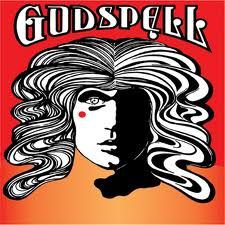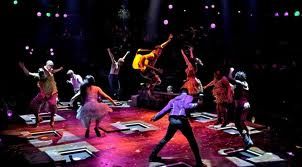Stress
A Ticket to Success
Building the Metropolis of People One Relationship at a Time
Posted June 28, 2012

A Ticket to Success
Last weekend I went to New York City. I always stay across from the World Trade Towers, and always feel a little sad and bewildered at the gravity of what occurred. There, amidst the life and movement, rests the two large ever-flowing pools that memorialize the people lost,

even as the two new buildings grow steadily towards the heavens, constructed by the people that remain. Sheathed in mirrored glass they reflect the tenacity and declaration of what human beings truly are: survivors that have learnt to survive in concert with each other.

I was with two of my kids and my wife to celebrate Mother’s Day, and to all of you who are Moms or have Moms a happy and blessed Mother’s Day to you. Being in New York can be stressful, but despite a couple of glitches with cab drives and being kept waiting at the airport the trip was also a lot of fun. We had come to New York for several fun reasons, one of them to see the revival of Godspell.

I had bought the tickets months in advance, and was planning on meeting the producer as well as going backstage to meet the cast.

But the E train was not running as it was mean to, the dinner took just a tad longer than expected, so by the time we got to the theater the show was soon to start.
I waited for my turn in line at the “will-call” box office for my tickets. After introducing myself to the ticket guy he got a serious look on his face, and told me they had heard about me but that there were no tickets for tonight. Somehow the ticket agency had booked for the following Tuesday, and this was Saturday. I felt my cortisol levels rise.
Waiting in the lobby were my wife, my kids, and my two elderly cousins, all expecting to see the show. Stress. Was I not going to be able to deliver on my promise of watching Godspell?
At the same time a young man approached and introduced himself as the Stage Manager. He was friendly and welcoming, and knew we were coming and the snafu with the tickets. He apologized that the producer, Ken Davenport, had waited as long as he could but had tickets for another show. He went on to apologize for the mix up with the tickets, but assured me he would put things right. The guy at the ticket counter agreed, and began to look here and there for my original statement, for house tickets, to somehow share and resolve the stress.
We were going to see Godspell.
From behind me came a burly, irritated voice of a large New Yorker. He leaned over my shoulder and snapped at the ticket guy, saying he wanted his tickets and what was taking so long. The ticket guy politely told the man that there was a problem and he was trying to solve it. The man did not take this kindly, instead snarling and growing his discontent, and saying if the ticket guy had known it was going to be a problem he should have taken him first.
I found myself saying out loud: “This fellow is solving my problem. When he is done I have no doubt he is skilled enough to then address yours.” The man huffed some more and said it was a shoddy arrangement and pushed himself to the front of the line to my right. I caught my first glimpse of him: a large salt and pepper haired man, standing a good 6’5”. He barged in front of a teenager and demanded service.
My ticket guy looked apologetic towards me but did nothing to intervene at the other line. He said he had found six tickets for the show, four in the second row, and two in the row directly behind. He was apologetic we were not going to be seated together but it was the best he could do. I was delighted he had found a solution, and gave him my heartfelt thanks.
We went into the show. Godspell is a lively musical by Stephen Schwartz, contemporized by an improvisation cast. The show starts with young men and women on cell phones, and knapsacks, briefcases or bags with the names of Socrates, Hegel, and a pizza box with L Ron Hubbard. A myriad of philosophers. And then onstage enters the actor playing Jesus.
For the next 75 quick minutes the audience is drawn along with the disciples into the basic premise that doing the right thing for others is the way to build the city of men, not a city of angels.

Doing the right thing included stories and parables of the Good Samaritan, the Return of the Prodigal Son, one story after another of one person helping another to relieve their stress, and reap the reward of a deed well done. The show has a message of how to build the city of men, (today perhaps better viewed as a Metropolis of People): through accepting each other for who we are.
The first act went so fast, was so delightful, I was astonished that it was already time for intermission. The kids went to the restroom while I chatted briefly with my cousin, then went with my wife to find our kids. My daughter was waiting in the long line to the ladies room, while my son was in and out of the men’s room. My wife and I waited with my daughter, watched her go in to the ladies room, and then my wife went to the back of the line to wait her turn. She did not cut in line, nor take advantage of waiting with our daughter to go in ahead of those that had already been waiting.
I waited for my daughter to emerge, went her with her brother back to the seats, settled them in, then went back to the restroom to wait for my wife. There, waiting outside, was the salt and pepper haired fellow. Our eyes met. I walked over to him even as he bristled.
“Sorry about the confusion up there,” I started. My apology caught him by surprise. His entire demeanor softened and he replied, “It wasn’t your fault.” I explained to him the dilemma I had faced, and he then explained his. It seems he has an adult daughter who has a significant disability. He noticed her beginning to wilt, with difficulty standing for a prolonged amount of time despite her crutches. He began to feel stressed, then angry, wanting to protect his daughter. He just needed someone to help him get his tickets so he and his child could go and sit down in the theater.
In the blink of an eye we judge each other. In the blink of an eye our limbic brain activates our survival mode. But with the blink of an eye we can re-establish our pre-frontal cortex, recognize our instincts, and then over ride them with our intellect.
I remarked how I understood that all he wanted to do was protect his kid. And then I put out my hand and told him my name was Joe. His hand extended and he told me his name. And we shook. For the rest of the evening, whenever we saw each other, we would smile, wave, and call each other by name.
Although I did not help solve his stress, the other ticket person did before the collapse of his kid. And when he and I were able to find a way to talk, we built a tower of understanding, and I believe a mutual respect. There is so much stress in the world, which leads to anger, and the sense that there is not enough to go around. In this case, the apparently limited resource of a ticket guy to get you to your seats. But even though we had both been competing, without knowing it, for this limited resource we had found a way to resolve our small war.
But if I had not gone over to chat with him, turned away in anger and disgust, I would never have found out why he had been so urgently trying to get his tickets. I would have, instead, perhaps lumped him as yet another uncouth pushy New Yorker, selfishly trying to get his way over the needs of others. And had he not accepted my advance, and reached out his own hand, we would not have had the chance to use our tickets of admission to the potential for a new friendship.

I would have been wrong, and wronged a father who was just trying to prevent his disabled child from falling down. Like a twin tower. But for that brief moment, he and I began to rebuild the Metropolis of People.




